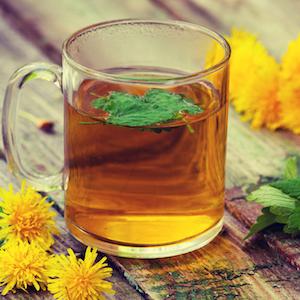A hot rock massage and herbal tea might make you feel nice, but they don't actually cure anything. Pointing that out in China, however, might land a person in jail.
Dr. Tan Qindong was just released after spending three months in a Chinese jail, and is now possibly awaiting trial, for the crime of criticizing Traditional Chinese Medicine (TCM), according to Nature News. He learned the hard way that speaking the truth about biomedical science is a very bad career move in that country.
In a blog post, Dr. Tan, who is an anesthesiologist and entrepreneur, said that a popular TCM drug called "Hongmao Medicinal Liquor" was poison. Very little information is available about this particular cocktail, but if it's like most other alternative medicine potions, he's probably correct. At the very least, the liquor does not act as a cure-all, as its manufacturer claims.
Why does China care so much about Hongmao Medicinal Liquor and TCM in general? The liquor generates 1.63 billion yuan (~$260 million) in sales and is China's second most popular TCM remedy. TCM is an ancient practice that is deeply ingrained in China's culture, and as such, it plays a pivotal role in China's domestic and global strategy. Therefore, by criticizing TCM, Dr. Tan was actually criticizing the Chinese government. That's a no-no.
Traditional Chinese Medicine Will Destroy Chinese Science
As I wrote for Foreign Policy:
Every major city has a traditional medicine hospital and university. A special government department exists to administer it, and the traditional Chinese medicine industry is a massive business. Its advocates in the West often contrast its supposed purity to the pharmaceutical industry, but in China traditional medicine is Big Pharma.
TCM is a powerful industry with a powerful patron: The Chinese government. China's biggest companies are mostly owned by the state, which is also true for TCM. For instance, the largest producer of TCM products is Tongrentang, a state-owned enterprise. Bejing has a financial stake in fostering the growth of the TCM industry.
It also has a cultural motivation. China is proud of its history and ferociously nationalist. As a result, President Xi Jinping wants TCM to be regarded as equals with Western medicine, and the government is actively funding the spread of this pseudoscience around the globe.
Those who disagree with that agenda are in trouble. Condemning TCM is perceived by the government as no less than an assault on Chinese culture, history, and economic interests. In an authoritarian country, the outcome is predictable: Jail.
This episode points to a larger reality: Despite its massive spending on R&D, China will never be a global leader in science as long as it prevents researchers from telling the truth.




